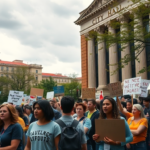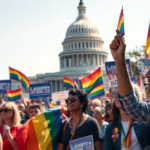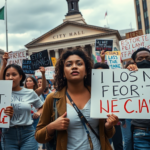**Wells Fargo Agrees to $85 Million Settlement Amid Diversity Allegations**
Repercussions from Diversity Interview Claims
Wells Fargo, a banking giant headquartered in the United States, has reached an $85 million settlement following allegations of conducting “fake interviews” with minority candidates. This lawsuit, initiated by SEB Investment Management, claims the financial institution complied with diversity targets by interviewing candidates from minority backgrounds without genuinely intending to hire them. This alleged practice occurred between February 2021 and June 2022, specifically for high-paying roles where positions had already been unofficially earmarked for other candidates.
Background and Market Impact
The revelations emerged through extensive media scrutiny, leading to a significant drop in Wells Fargo’s stock price. This plunge reportedly wiped nearly $17 billion off its market value. The allegations pointed to executives and human resources personnel who purportedly directed employees to conduct these perfunctory interviews for documentation purposes.
The poignant issue first came to light through Joe Bruno, a former Wells Fargo executive who reported the issue, alleging that “diverse” candidates were interviewed for jobs already promised to others. Bruno’s cooperation with investigative journalists, however, led to his dismissal from Wells Fargo under unrelated charges of inappropriate behavior with another employee.
Even as Wells Fargo decided to settle financially, it continues to stand by its claims that these accusations lack merit. In a public statement, the bank reaffirmed its commitment to combating discrimination and expressed satisfaction at reaching a settlement that averts prolonged legal debates.
Scrutiny of Corporate Diversity Practices
This incident has cast a spotlight on the broader implications of diversity practices employed by large corporations. Many critics now question whether these initiatives are genuinely aimed at promoting workplace equality or merely fulfilling public or regulatory expectations. The controversy around Wells Fargo has triggered significant discourse regarding the sincerity and effectiveness of diversity and inclusion measures across industries.
Dr. Jonathan Nunez, a professor of Business Ethics at the University of Virginia, commented on this ongoing issue. “While diversity policies are crucial for addressing workforce imbalances, they must be implemented authentically. The recent debacle at Wells Fargo underscores the complexities involved in executing these policies without reducing them to mere box-ticking exercises,” he notes.
Community Implications and Local Perspectives
Within communities across the United States, this settlement has reverberations beyond Wells Fargo’s corporate sphere. Locally, it raises questions about the authenticity of diversity efforts in hiring practices and whether similar practices are commonplace in other sectors. The settlement also prompts introspection within companies on aligning practices with professed values amidst heightened public scrutiny.
Community voices, such as Jane Ramirez, an advocate for workplace diversity in San Francisco, have emerged urging local businesses to reassess their hiring strategies. “The Wells Fargo saga is another wake-up call. Diversity is not just about ticking boxes but about fostering genuine inclusiveness and opportunities for underrepresented communities,” Ramirez contends.
Furthermore, the situation spotlights the necessity for businesses to maintain transparency and build trust with customers and employees. By engagement and trust-building, companies can mitigate the repercussions of similar controversies and better uphold diversity commitments.
Future Outlook and Considerations
For Wells Fargo, the resolution of this lawsuit via settlement means closure on the open legal turmoil, yet it spotlights the need for systemic reforms. The organization, like many global corporations, will be under increased pressure to transparently demonstrate its commitment to equity and inclusion.
Moving ahead, businesses across the U.S. might face heightened scrutiny over diversity practices especially with precedent-setting cases like this one. They may need to audit and possibly overhaul existing recruitment frameworks and methodologies to ensure equitable encounters.
James Koh, a diversity consultant in Austin, advises companies to balance regulatory compliance with ethical hiring processes. “The discourse is shifting towards impact rather than intent. Firms will need to cultivate genuine progress by devising measurable goals beyond recruiting tactics, and this settlement will amplify that narrative,” Koh articulates.
Resources and Support for Affected Communities
Residents looking to deepen their understanding of diversity practices in corporate settings can seek resources offered by local advocacy groups. Organizations such as the California Diversity Council provide workshops and materials to bridge gaps between corporate policies and genuine inclusive practices.
Communities and business leaders can further collaborate, whether through roundtable discussions or public forums, to ensure dialogue remains open and constructive. As stakeholders unite, the impetus for meaningful change can transform Wells Fargo’s settlement into a junction for broader advocacy and renewed trust in corporate commitment to diversity.
Through these avenues, stakeholders can collectively aim to elevate diversity beyond written policies, focusing instead on concrete actions that reflect genuine inclusiveness across various industries. Accordingly, the discussion that Wells Fargo has sparked is important to the residents of the United States, as it reflects on the foundational values of equity and transparency cherished by communities nationwide.







